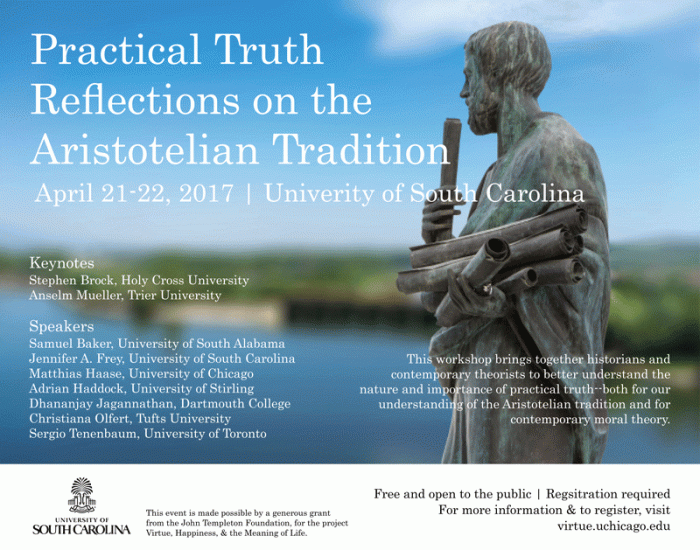
Amichai Amit, PhD student in philosophy at the University of Chicago interviewed Philosopher Fr. Stephen Brock, who will give the public talk “Aquinas and the Life of the Mind” on May 12 at 4pm in Harper 140. Visit https://virtue.uchicago.edu/brock for more information, to register (required), and to live-stream.
Amichai Amit: What is the life of the mind? What characterizes the kind contemplation that constitutes this kind of life?
Fr. Stephen Brock: Aquinas regards mind, or intellect, as the very highest form of life. What distinguishes living beings, at any level, from inanimate things, is that they are intrinsically active. In some way or another they act on their own, from out of themselves. They are self-activating. Even in a plant, the workings of its parts contribute to each other, to the plant’s survival and development as a whole, and to its interactions with its surroundings. Animals, by their perceptions of things and the desires that result, initiate their own movements and control their interactions with things. But those that have intellect are agents of their activities to an especially high degree, because they can grasp, and assess, and decide upon, the very purposes or goals that they act for. It is up to them to dedicate themselves to one kind of activity or another, to adopt their own “way of life.” In a word, they are free. They are most alive, because their activities are their own to determine. They are their own masters; not in every way, of course, or without any conditions, but nevertheless in a very real sense. And this is because they have intellect, by which they can stand back and see the big picture. They can take stock of things, and of themselves, and of their relations to things and to each other, and of the various possibilities for activity that are available to them.
Usually, I suppose, if people speak of contemplation at all, it is in contrast to action. Thinking is one thing; doing is another. But thinking is certainly an activity in which people can decide to engage. It can even be one to which people dedicate themselves, what they live for. I am speaking the kind of thinking whose aim is simply to understand things, to know what they are and why. Aristotle famously says that all humans desire to know. When we confront something that we do not understand, we wonder about it; and when we come to understand it, that itself gives us satisfaction, whether or not the understanding is useful for some other purpose that we might have. In some people the desire for understanding is especially strong, and it can extend very far, even to the desire to understand the whole of reality, as far as our poor minds are capable of that. That is the desire for wisdom; that is philosophy. It is very difficult. But Aquinas took to himself a saying of Aristotle’s, that to catch even a glimpse of the truth about the largest and highest things is more delightful than to understand through and through some smaller, less important thing.
Aquinas also thought that those who engage in contemplation benefit not only themselves but also all of society. For, even if not everyone has the taste or the aptitude for philosophy, everyone does need at least a share in the light of wisdom. We all need at least some grasp of the truth about the world and our role in it. We all know that we exist as parts of something larger than ourselves. We cannot really be the masters of our lives if we do not have a clear idea of how we fit into the grand scheme of things.
Fr. Stephen Brock is the 2017 Visiting Scholar with the project Virtue, Happiness, & the Meaning of Life and the Department of Philosophy at the University of Chicago.
AA: Aristotle, famously, held that the life of contemplation is the happiest life. While many of Aristotle’s notions about virtue and happiness remain appealing to contemporary readers, the notion of contemplative life as happy (and virtuous) may be less immediately clear. Can you explain in a few words in what sense contemplative life is happy, virtuous and meaningful?
SB: It is obvious that moral virtue enhances that freedom of ours, that self-mastery. It frees us from the waywardness of our passions, from our self-centeredness, from our distractedness, from our thoughtlessness. But Aristotle also insisted on there being such a thing as intellectual virtue—the cultivation of our minds, mastery over our very thoughts and beliefs, the habit of thinking well and truly about things. Actually he identified a variety of such habits. But the primary one, the one that in a way rules over all the others and that perfects and satisfies the mind most of all, is wisdom. However, I think it is clear that the main reason why he finds the pursuit of wisdom the most satisfying and the most meaningful of all pursuits is that he is sure that it brings us into contact with realities that are even better than us — living realities whose lives are even more perfect, even happier, than ours can be. He is sure that there are divine beings and that we can know some truth about them. In one passage he even identifies this as the true purpose of our lives, where their deepest meaning lies: in knowing and serving God. In doing that, he judges, we even achieve something of a share in the divine happiness. I think it is clear that if he had thought there were no divine beings, he would have found considerably less value and satisfaction in philosophical contemplation.
AA: In what way (if any), does Aquinas’ conception of ‘the life of the mind’ different from the Aristotelian one? To what extent is this difference inhere in Aquinas’ theology? How relevant is Aquinas’ account of ‘the life of the mind’ to non-Christians in general and in particular to secular readers?
SB: Aquinas endorses Aristotle’s conception very strongly. But yes, his own conception also differs from it, and this is because of his theological beliefs. He is convinced that the God whom Aristotle glimpsed, admired, and served from afar, has spoken directly to us, sought to teach us about Himself, and even offered us the possibility of sharing in the life of His mind, in an amazingly intimate and personal way, as His children and His friends. And so for Aquinas the life of contemplation is above all meditation on the Word of God. But he thinks that philosophy – good, sound philosophy, pursued according to its own demands – can be very useful in that meditation.
I am not sure what to say about how relevant his account is to non-Christians and to secular readers. It seems to me that for him, the question of how relevant it is to them would really be the question of how relevant it is to his Master’s desire that they come to know Him, how it might serve to open their minds to His light. Aquinas would think that this is what people need most, whether they realize it or not.
AA: How relevant, do you think, is the notion of life of contemplation to contemporary life?
SB: Perhaps we have lost the sense of the “wonderfulness” of things, stifled that natural desire to understand. The screen dazzles, but it does not produce wonder; if anything it hypnotizes. That is slavery. Perhaps this is because we have lost contact with the natural world. It is fascinating even to look at, and even more fascinating to understand. The mind tires of seeing the same thing on the screen every day; not of seeing the same natural things.
I think contemplation is all the more relevant today, all the more urgent, for being so widely ignored.
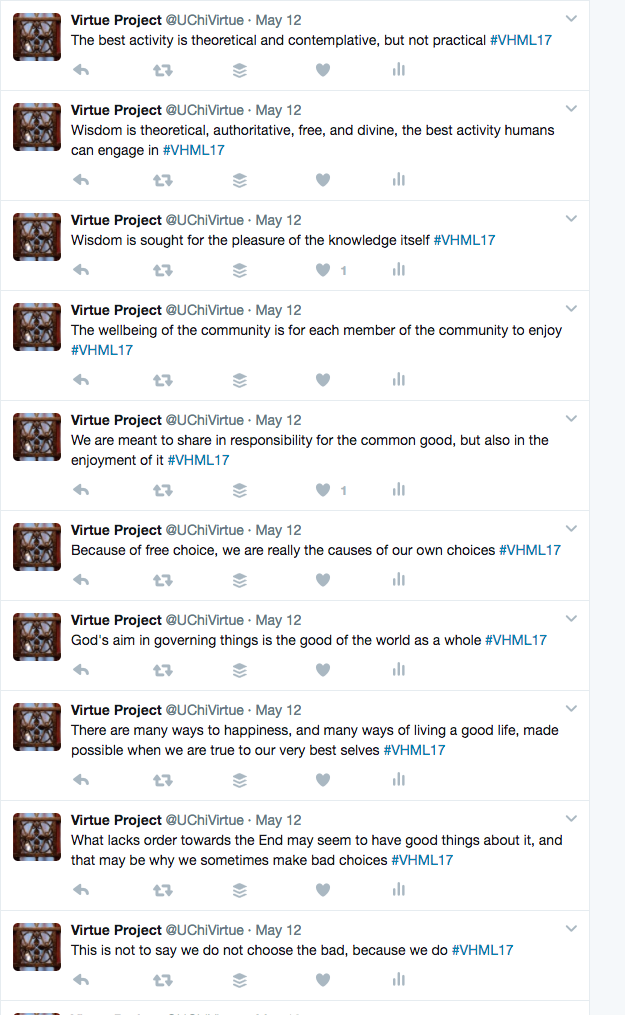




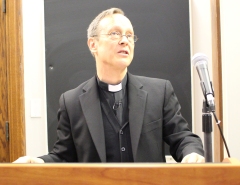



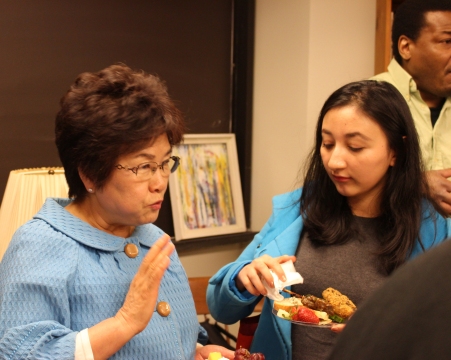
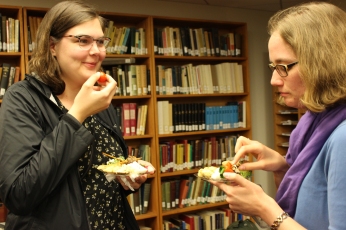



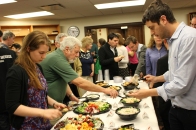
 4pm Friday, May 12 in Harper 140 at the University of Chicago. This event is free and open to the public.
4pm Friday, May 12 in Harper 140 at the University of Chicago. This event is free and open to the public.



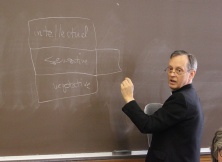
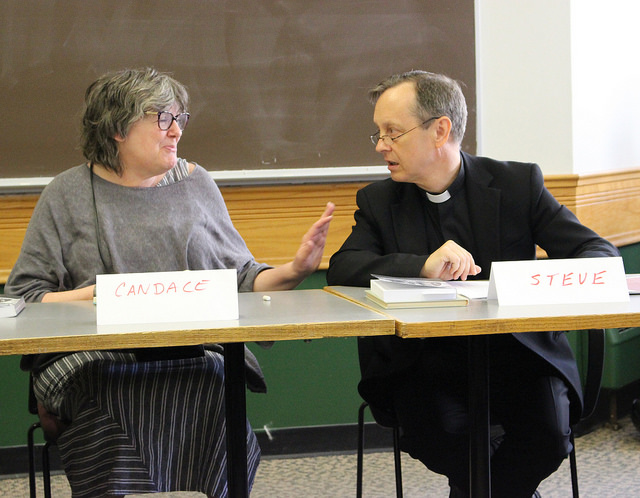

 Stephen Brock, Holy Cross University – “Thomas Aquinas, the Bearer of Practical Truth, and the Rationality of Action”
Stephen Brock, Holy Cross University – “Thomas Aquinas, the Bearer of Practical Truth, and the Rationality of Action” Anselm Mueller, Trier University – “Is Practical Truth a Chimera? Questions for Anscombe”
Anselm Mueller, Trier University – “Is Practical Truth a Chimera? Questions for Anscombe”